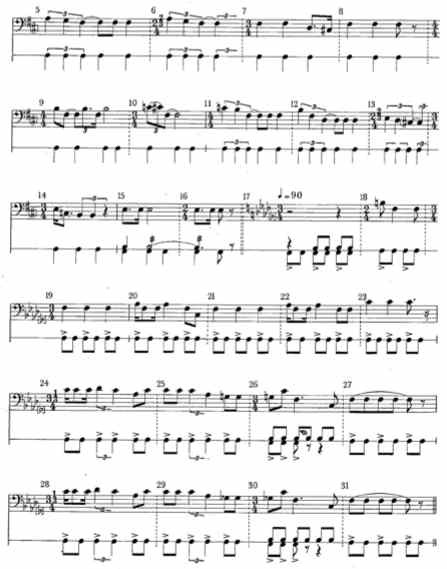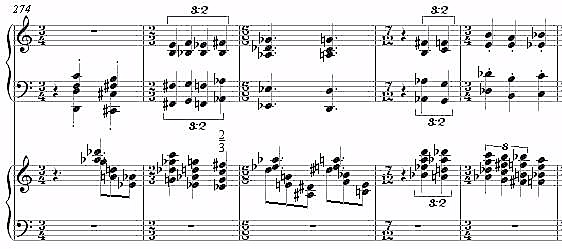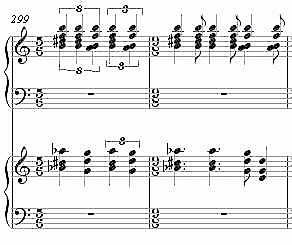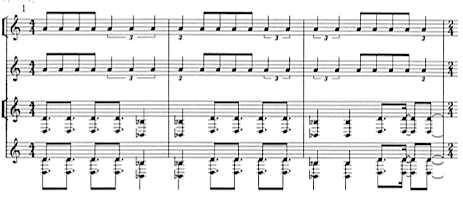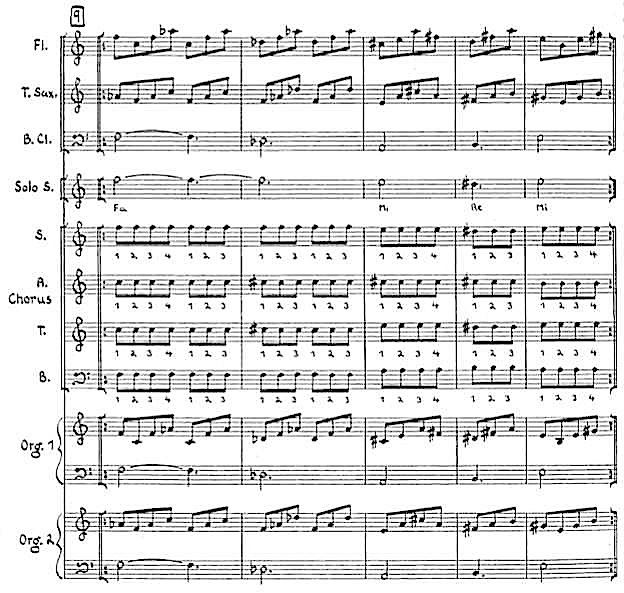To call post-war atonality “the Dark Ages” is so entirely retarded, I’m beside myself. If anything, post-war serialism… exposed more light on what music was, is and can be, and was nothing short of a cultural revelation. Post-war atonality made today’s taste for oblique tonality possible. It’s like women today who disparage the hard-core feminists of the 60s and 70s, even though today’s women are reaping the benefits that those unsightly, nail-spitting bull-dykes risked social derision to gain.
Few feminists I knew in the ’70s were nail-spitting bull-dykes (and those who were were lovely people), but I do like the analogy. It is certainly the case that most postminimalist composers know the serialist literature inside and out and are enthusiastic about much of it. And that a lot of serialism’s structural concerns got picked up by postminimalism, as, I would speculate, serialism’s textural mercuriality enlivened the New Romanticism. I think we could definitely develop the New Tonality’s inheritance from serialism into a meme.Â


